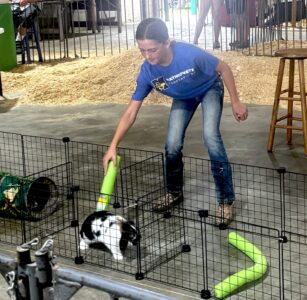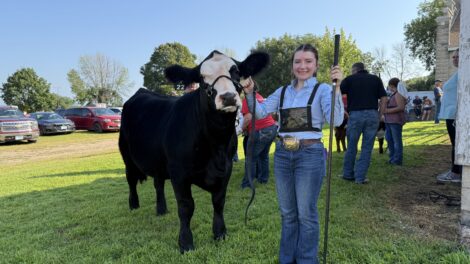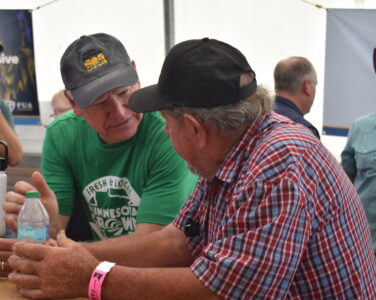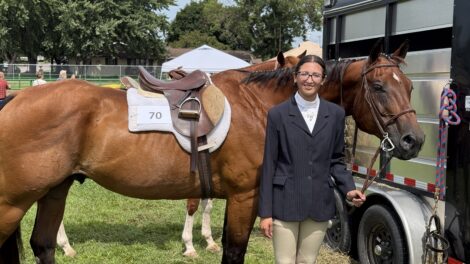Canada goose capital resident grows gladioluses
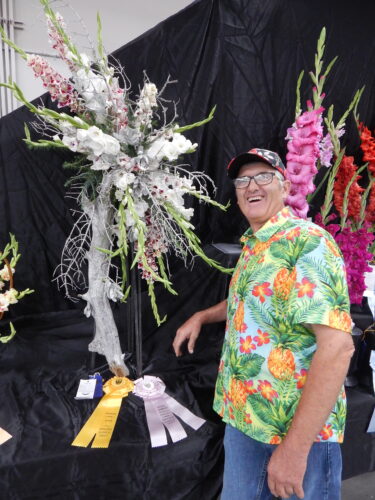
Staff photo by Fritz Busch
Minnesota Gladiolus Society President Lew Wallace of Middle River stands next to one of his award-winning flower arrangements at the Minnesota Gladiolus Society State Show at the New Ulm Civic Center Sunday.

Wallace grows gladioluses with the best of them
NEW ULM — Minnesota Gladiolus Society President and National Gladiolus Society Vice President Lew Wallace said the state show at the New Ulm Civic Center Sunday had 96 flower designs and 355 spikes.
“It was a very good number,” said Wallace. “We’re always happy to come to New Ulm for the show. It’s a great place to have it.”
Living in a main flyway for the migration of Canada geese and other water fowl isn’t preventing Lew Wallace from being a leading gladiolus grower.
The Wallace’s 670-acre farm called Honker Flats, in honor of the Canada goose, 32 miles from Manitoba, Canada, Wallace and his family of rural Middle River, plant glads on a field of light sand.
Now the Minnesota Gladiolus Society president and national vice president, Wallace started a greenhouse project as a 4-H project and has continued to use it for 43 years.
The Wallace growing area included four 30′ x 150′ gothic style hoop houses in parallel, connected on one end with a breezeway.
With outdoor growing space for potted perennials, trees, shrubs, a former dairy barn features bare root fruit trees, shade trees and small fruits offering for climate controlled shopping.
A Minnesota State Fair demonstrator, Wallace said 4-H provided 50 years of help learning the value of basic fundamentals.
Why glads?
“The variation of colors, flower styles, the substance and texture,” said Wallace. “I love the feel of them. Put your hand on them. Some are like steel. Some are soft and waxy. They’re mostly used as a cut flower.”
That’s not all.
“They’re lasting quality is excellent. You can get about two weeks of bloom out of them. They don’t wilt easily,” Wallace said. “We plant them in the spring and dig in the fall. We’re harvesting new varieties all the time.”

